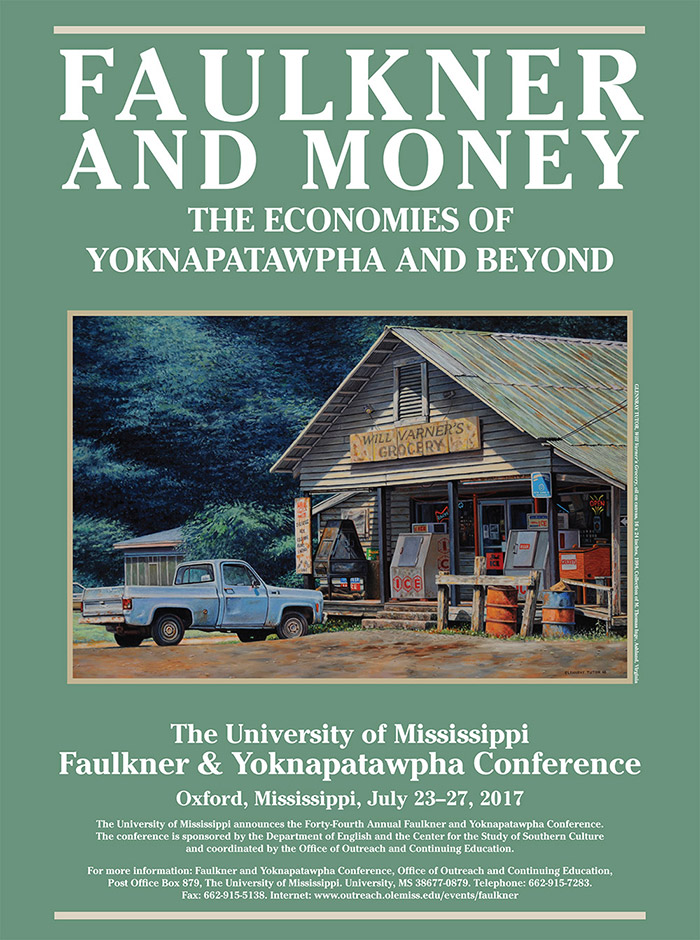
Faulkner’s Failed Economies
Location
Nutt Auditorium
Start Date
26-7-2017 2:00 PM
Description
Before the Great Depression and the New Deal began to transform the economy of the South, William Faulkner turned his attention to the problem of Southern poverty and to the plight of Southern poor whites. This talk explores the relationship between Faulkner’s novel, As I Lay Dying (1930) and the constellation of texts in which Faulkner repeatedly retells another story, about the sale of wild Texas horses to the inhabitants of Frenchman’s Bend, texts (mostly in manuscript) ranging from “Father Abraham” in 1926, through “As I Lay Dying” (two versions), “The Peasants” and “Aria Con Amore,” to “Spotted Horses” (first published in 1931). A special connection links the encounter with poverty to the techniques of multi-perspectival, recirculating, and tangential narrative that arise to represent it. Faulkner’s understanding of poverty is remarkably expansive, I argue, not least because it relates to his own writerly self-conception during a time of money worries.
Relational Format
Conference proceeding
Recommended Citation
Jones, Gavin, "Faulkner’s Failed Economies" (2017). Faulkner and Yoknapatawpha Conference. 20.
https://egrove.olemiss.edu/fy/2017/schedule/20
Faulkner’s Failed Economies
Nutt Auditorium
Before the Great Depression and the New Deal began to transform the economy of the South, William Faulkner turned his attention to the problem of Southern poverty and to the plight of Southern poor whites. This talk explores the relationship between Faulkner’s novel, As I Lay Dying (1930) and the constellation of texts in which Faulkner repeatedly retells another story, about the sale of wild Texas horses to the inhabitants of Frenchman’s Bend, texts (mostly in manuscript) ranging from “Father Abraham” in 1926, through “As I Lay Dying” (two versions), “The Peasants” and “Aria Con Amore,” to “Spotted Horses” (first published in 1931). A special connection links the encounter with poverty to the techniques of multi-perspectival, recirculating, and tangential narrative that arise to represent it. Faulkner’s understanding of poverty is remarkably expansive, I argue, not least because it relates to his own writerly self-conception during a time of money worries.

